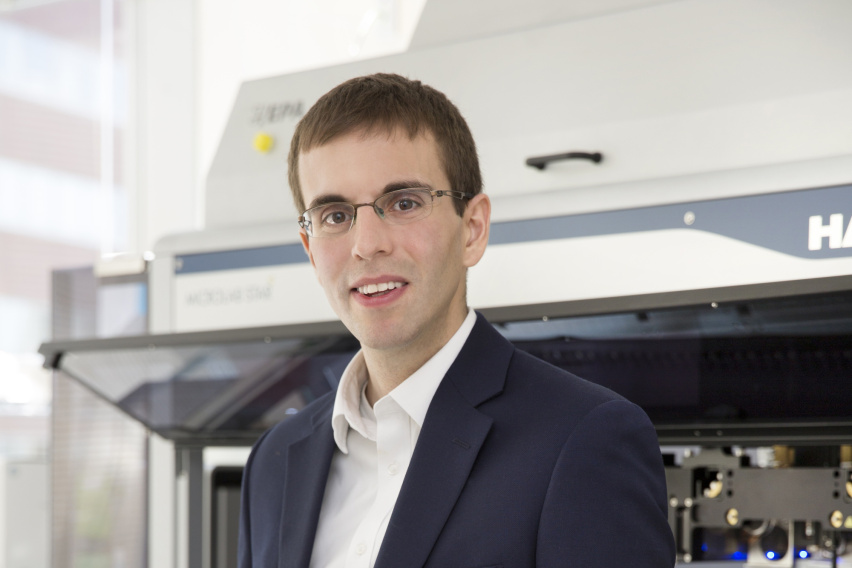MIT News
May 22, 2015
KI researchers have shown that they can use a microfluidic cell-squeezing device to introduce specific antigens inside the immune system’s B cells, providing a new approach to developing and implementing antigen-presenting cell vaccines. Through CellSqueeze, the device platform originally developed at MIT, the researchers pass a suspension of B cells and target antigen through tiny, parallel channels etched on a chip. A positive-pressure system moves the suspension through these channels, which gradually narrow, applying a gentle pressure to the B cells. This “squeeze” opens small, temporary holes in their membranes, allowing the target antigen to enter by diffusion.
